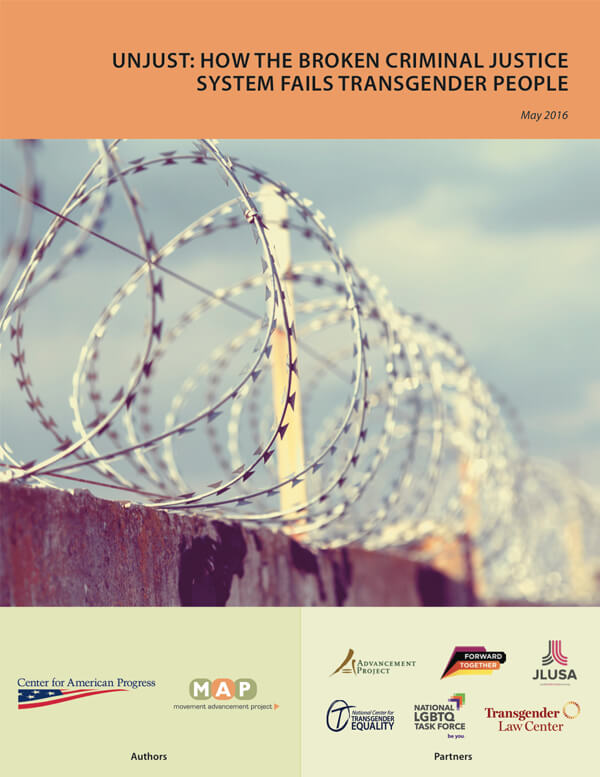The Bottom Line
Unjust: How the Broken Criminal Justice System Fails Transgender People examines how transgender and gender non-conforming people face high levels of discrimination in many areas of life putting them at risk for economic insecurity, homelessness, and reliance on survival economies. Combined with policing strategies that profile and target transgender people, particularly transgender women of color, the result is high rates of criminalization of transgender people. For example, a shocking 21% of transgender women have spent time in prison or jail, compared to only 5% of all U.S. adults. And one in five (22%) of transgender people report being mistreated by police.
Once within the criminal justice system, transgender people are often discriminated against, verbally and sexually assaulted, refused adequate medical care, and treated with utter disregard for their identity and dignity.
Among the variety of laws that disproportionately impact transgender people:
- Bathroom Laws: Over the past year, cities and states have debated, and in some cases passed, laws criminalizing transgender people for using the restroom that matches the gender they live every day. In the 2015-2016 legislative session, at least 20 states proposed legislation restricting restroom access for transgender people.
- HIV Criminalization Laws: Transgender people are among the groups most affected by the HIV epidemic. People living with HIV, including transgender people, face a patchwork of outdated and reactionary laws that penalize behavior by people living with HIV, even if those behaviors carry no risk of transmission or unintentionally expose others to the virus.
- Criminalization of Sex Work: Faced with discrimination at school and work, high rates of homelessness, and limited access to meager safety net supports, some transgender people engage in sex work to earn income or trade for housing. Because transgender people, particularly transgender women of color and undocumented transgender immigrants, may be disproportionately represented among individuals engaged in sex work, they are frequent targets of laws criminalizing prostitution and related offenses. Police generally have wide discretion under these ordinances, and they often arrest individuals for vague violations such as “loitering with intent to solicit.”
How the Broken Criminal Justice System Fails Transgender PeopleDownload
Recommended citation:
Movement Advancement Project and Center for American Progress. May 2016.
Unjust: How the Broken Criminal Justice System Fails Transgender People. https://www.lgbtmap.org/policy-and-issue-analysis/criminal-justice-trans (date of access).


